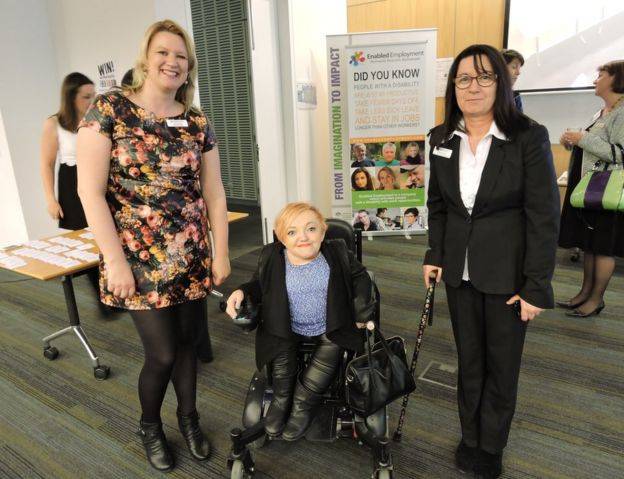Douger
Rookie
- Banned
- #1
OK. All you murkins go over and lets hear how" cute" 'original' adorable" and funny this is.
100% gone to hell and this is the answer.
Dogshaming
100% gone to hell and this is the answer.
Dogshaming
Follow along with the video below to see how to install our site as a web app on your home screen.

Note: This feature currently requires accessing the site using the built-in Safari browser.
Talk therapy has tended to get short shrift in the treatment of people who have been diagnosed with mental illness. Usually, medications are the first treatment doctors reach for to lessen symptoms of psychiatric disorders. This is especially true in the case of people who suffer from psychosis marked by abnormal thoughts. Psychosis is common in schizophrenia and some severe forms of depression. But researchers at King's College London have shown that a combination of medications along a kind of talk therapy, known as cognitive behavior therapy or CBT, not only improves symptoms in people who suffer from false beliefs, but the changes can last a long time.
Liam Mason is a clinical psychologist at King’s College who led the study published in the journal Translational Psychiatry. Using brain imaging, Mason and colleagues saw connections between two brain regions strengthen in patients following a six month course of CBT. The improvements occurred between the amygdala, the part of the brain that controls fear and emotion, and the frontal lobes, which are involved in thinking and reasoning. “And what we are really excited about here is that these stronger connections appear to be linked to long term improvement in people’s symptoms and recovery, even as much as eight years later,” said Mason.

An image illustrates activity in a human brain.
In the original study, a group of participants suffering from psychotic symptoms took medication. Some also received cognitive therapy, while the others did not. Researchers saw an improvement in brain connectivity in those who had talk therapy that was not seen in the non-CBT group. Investigators then followed 15 of the 22 CBT patients for eight years, using medical records and questionnaires. They found the participants’ level of recovery and well-being was still improved, without additional therapy.
Mason says the finding shows an association between talk therapy and long-term recovery in patients who had been haunted by paranoid beliefs. “Traditionally, the only interventions or treatments that have been offered are medication and even surgery in the past as well,” said Mason. "So I think, and the whole research team are really excited about, these findings that show that actually it's possible to have these brain changes from psychological therapies as well.” Investigators will now try to confirm their findings in a larger study of patients with mental illness. Researchers hope the results could lead to more refined and improved treatments for people who suffer from psychiatric illness.
Study: Talk Therapy Changes Brain Wiring in Mental Illness
Researchers at the University of Eastern Finland found a link between sauna visits and memory diseases after following more than 2,300 middle-aged Finnish men for more than 20 years. In the study, men who went to the sauna four to seven times a week were found 66 percent less likely to be diagnosed with dementia, and 65 percent less likely with Alzheimer's disease, than those taking a sauna once a week. "We have taken into account other lifestyle factors, like physical activity and socioeconomic factors.... There is an independent effect of sauna on these outcomes," said Jari Laukkanen, senior researcher and a professor of clinical medicine at the University of Eastern Finland.
He noted that the study only indicated an association between the sauna and memory diseases, and the findings would have to be fleshed out through further studies with different age groups, other nationalities and women. The findings, published in the journal Age and Ageing in December, suggested however that the health benefits of sauna could extend from the heart to the brain.

People emerge into the cold open air from a free sauna set up for the holidays in the historical center of Helsinki, Finland
Previous results of the follow-up study have shown that men who spent time in a sauna seven times a week were less likely to die of heart problems, compared to those who only partook once a week. "In the sauna, the heart rate increases and we start to sweat. This is a bit like physical exercise," Laukkonen said. "After sauna, you may have lower blood pressure, and blood pressure is an important risk factor in cardiovascular and memory diseases. This may be one possible explanation for our findings," Laukkanen said.
Regular bathers at the Finnish Sauna Society, which has around 4,200 members in Helsinki, agree that good health many be linked to the relaxing effects of sauna visits. Club members go to the sauna several times a week, and in winter cool off with a swim in the icy Baltic Sea. "I feel relaxed after sauna, and it's a place where I can have a nice conversation with my friends. The social aspect is the best thing about sauna, when you get older," Hannu Pitkanen, a senior member of the sauna society, told Reuters.
Sauna Visits May Help Keep Brain Healthy, Study Finds

Jessica May was moving quickly up the career ladder until she was tripped up by mental illness. Following the birth of her first child, Jessica developed a problem with her thyroid gland that greatly exacerbated her pre-existing anxiety disorder. "I've had anxiety my whole life," says the 36-year-old from Canberra, Australia. "The [thyroid] condition meant that my anxiety got out of control." This was back in 2012, and Jessica decided to return to her civil service job sooner than originally planned, after she and her doctor agreed that getting back to doing the work she loved would keep her focused and hopefully mitigate her anxiety.

Jessica's own troubles inspired her to set up a business to help others in a similar situation
But Jessica, who had to reveal her mental health problem to her employers to receive the flexible schedule she needed, claims that her managers and colleagues started to make negative assumptions about her capabilities, and began to exclude her from projects. "Because of how I was treated... I didn't really get better," she says. Having previously managed 17 staff, Jessica says she felt disheartened and devalued. However, the bad experience did ultimately have a positive impact - it made Jessica determined to help other people with mental or physical disabilities, and gave her the idea for setting up a business to do this. "I knew there needed to be something for people with disabilities who just need a little bit of flexibility from their employers," she says.

The late Australian comedian Stella Young (centre) was an Enabled Employment ambassador
So she decided to quit her government job and launch Enabled Employment, a recruitment consultancy that helps people with a disability find paid work. Today, the Canberra-based company helps thousands of people find work at more than 400 businesses in Australia, including accountancy giant PricewaterhouseCoopers, taxi hire service Uber, and even the Australian Defence Force. To help get Enabled up and running, Jessica successfully applied for a small entrepreneurship grant from the Australian Capital Territory government. She left her civil service job one Friday in December 2012, and started work at Enabled the following Monday, with help and support coming from a local start-up support initiative called the Griffin Accelerator. The number of people and companies using the business then slowly started to grow.

Enabled helps people with disabilities find employment
The business is similar to a regular recruitment agency, in that it maintains an online listing of available jobs, and acts as a mediator between would-be employees and hiring managers. However, Enabled also offers what it calls "accessibility brokering", which means that it works to ensure that businesses are able to offer employees the working conditions they need to perform at their best. This includes checking on flexible working hours and ensuring that offices have disabled access and toilets. Jessica is keen to stress that the company is not a charity. Instead it is a for-profit business. She believes that charities that pay businesses to take on disabled staff can reinforce negative stereotypes about disabled people. "It really devalues people with disabilities who are totally capable," she says. "We don't want anyone to feel like a charity case."
MORE